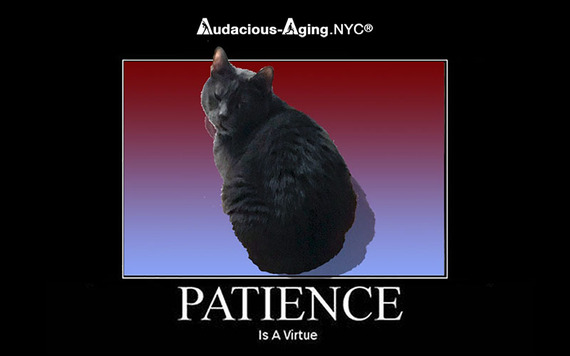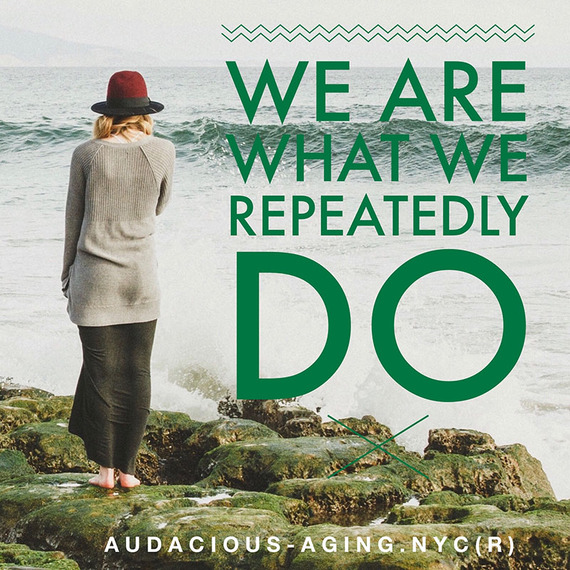Everyone has probably heard that it takes 21 days to form a habit. So, it may be frustrating when you find that you, personally, are not getting it. That after 21 days, you're only part way to the new behavior you may be working on.
Maxwell Maltz, the doctor who is credited with establishing the 21-day habit timetable, actually said it takes "a minimum of about 21 days," but people found it more encouraging to offer an easy solution and made that into a mantra shortening it to, "It takes 21 days to form a new habit." (source)
How Long It Really Takes to Build a New Habit
Phillippa Lally, a health psychology researcher, published a study in 2009, which found: How long it takes a new habit to form can vary widely depending on the behavior, the person, and the circumstances. (Source)
Where to Go from Here
At the end of the day, how long it takes to form a particular habit doesn't really matter that much. Whether it takes 50 days or 500 days, you have to put in the work either way. The only way to get to Day 500 is to start with Day 1. So forget about the number and focus on doing the work.
Set Small Milestones
Milestones increase focus because they reduce the urgency of the project ahead of you. One of the biggest mistakes people make is be overwhelmed by the goals they have. We think they are insurmountable and question what's the use. That is a sure way to make your life and journey miserable and discouraging. You need to set small milestone goals.
Once you start focusing ONLY on your next small milestone goal, you will be surprised how much more empowered and motivated you will feel.
Here's a Popular Habit: MOVE (Exercise) MORE
Exercise plays a role in so many aspects of our well-being (both physical and mental) that we all hold it as a habit worth pursuing.
There's only one problem... Forming this habit takes a while to stick. Regular exercise is significantly trickier to do regularly compared to easier habits like drinking a glass of water every morning. Research suggests that it takes at least 66 days for a regular exercise habit to form.
How to form this habit
Since the biggest challenge for exercising regularly is how long it takes to form the habit and to see lasting results, increasing your motivation is really important.
The best way to make exercise a habit is to start by making a decision that is so easy you can't say no.
Here are 3 strategies you can use in the beginning:
Strategy #1:
This is probably most important and one that many people ignore with disastrous results. Choose an activity you enjoy doing. Didn't I say it's hard to form a habit doing something you don't like to do?
Do you hate the treadmill? Why would you force yourself to spend a half hour doing this? What are the odds of your keeping it up?
Spend some time thinking about an activity you'd look forward to doing that would give you the fitness benefits you want (running outside, power walking, Zumba, spin class, aqua aerobics - some thoughts to get you going).
Strategy #2:
Focus on finding a way to get started in just 2 minutes rather than worrying about your entire workout.
Looking for motivation to go for a run? Start by filling up your water bottle and put on your running shoes. That's all you have to do to consider today's workout a success. Often, this 2-minute start will be enough to get your motivation flowing and help you finish the task. And if it doesn't, you will have succeeded for 2 minutes. In the big picture, this is a big deal.
Strategy #3:
Set your intention to exercise by filling out this sentence: "During the next week, I will exercise on [DAY] at [TIME OF DAY] at/in [PLACE]."
One research study showed that people who filled out this sentence above were 2 to 3 times more likely to exercise over the long run. This is a psychology concept called "implementation intention" and there are hundreds of studies to back it up. (Source)
You have to pick a trigger that reminds your brain to start thinking about the habit you want to develop (in this case, physical movement). Then, pick a reward, which will help motivate you. And finally, you actually do the routine you want to make a habit. Once you become the type of person who doesn't miss workouts, then you can worry about making progress and improving. Once you build the habit of exercise, you can find thousands of ways to improve. Without the habit, every strategy is useless. So, build the habit first, worry about the results later.
Jacqueline Gikow is an enthusiastic, supportive personal trainer and wellness coach, inspiring a healthy, active, and vital life now and tomorrow through taking control of weight issues, maintaining healthy bones and brain, keeping their hearts strong and joints flexible as well as letting go of old habits.
Start where you are. Use what you have. Do what you can. Contact me through Audacious-Aging.NYC® to get started with remote coaching or an in-home personalized fitness program.


